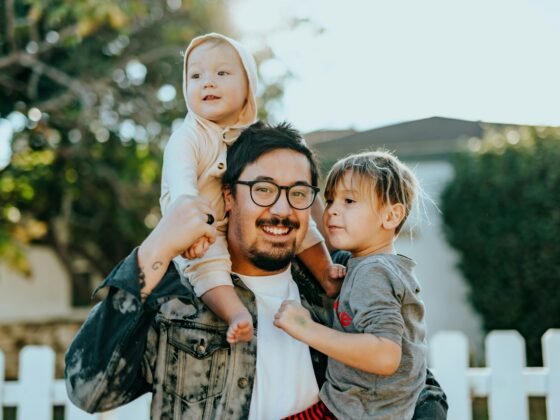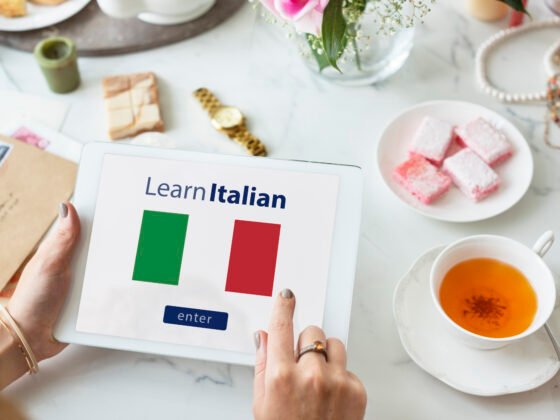Just a few months ago, my cultural heritage was a yawn fest.
I go to a predominantly middle-class and Caucasian school (read: boring)! I envy my classmates that seem to effortlessly live in two worlds – the bland all-American world I see reflected in my life and television, and what seems to be the much more interesting and exotic world of their ethnic heritage. Hispanic, Filipino, Cambodian, Russian, Sri Lankan – anyone with a family past rooted in another, foreign place with its unique folkways and traditions – I was jealous.
I suppose that’s what prompted me to ask my parents about our family history. Surely, we had one? I wanted to discover our family heritage – even if it was a million generations back – and reconnect to a culture that might offer a bit of flavor compared to what I found to be an otherwise bland one, full of Reebok sneakers and Coca-Cola.
After paging through a dusty family album, I realized that my cultural heritage was rooted in Germany. My great-great-grandfather was German. He spoke German, ate pretzels, and wore lederhosen. In terms of exoticism, I hit pay dirt. My great-great-grandfather also left behind a diary – written in German – and I was determined to translate it.
I just had to learn German first…
My friend recommended OptiLingo, which uses a method called “Guided Immersion.” I tried it and liked it. The Guided Immersion method in a nutshell means this: lessons are broken out into small, easy-to-digest chunks of material, spaced out over a five-day period. I chose to study Monday through Friday, for 30 minutes per day. Short review sessions are built into each lesson, and at the end of the week there is a self-test. I found the self-test very helpful because it identified areas of my study that I need to focus on more, and what I’ve pretty much mastered.
Oh, and by the way. I’m a high school student. I’m taking French 2 and even though I’ve taken two semesters of French, my French language proficiency isn’t anywhere close to my German language proficiency. And I’ve only been using the OptiLingo program for two months. Crazy, right?
Given that German was at one point going to be the national language of the United states, chances are you or someone you know has German ancestry. Perhaps you’re interested in learning German? In which case, here are some fun facts for you that you might find interesting:
- German is closely related to English, which makes it one of the easiest languages for native English speakers to learn! German is also a handy language to learn if you’re traveling to Europe, as it is the most commonly spoken language in the European Union. It’s an official language in Germany, Austria, Switzerland, Italy (South Tyrol), Liechtenstein, and communities of Belgium. Additionally, German is the third most taught language in the world (beat out only by English and French).
- German and English share an astonishing 60% of their vocabularies, so you’re already off to a great start with learning German!
- The first book ever printed was in German. (It was the Gutenberg Bible.)
I’m sure this is sounding pretty great, right? Well not to burst your bubble or anything, there are a few things I need to tell you about German. Otherwise, you might think I tried to fool you into this whole language learning thing…
The Alphabet is More than A,B,C
The German alphabets are the 26 letters of the English alphabet; however, you should also be aware that it has 4 additional letters you’ll need to know.
Ä, Ö and Ü are called “umlauts” and sound very similar to A, O and U, but they are formed in the front of your mouth and thus have a sharper sound.
βisoftenmistakenfor“b”butitiscalled“esszett”andispronouncedas“ss”.
Gendered Nouns – Three of ‘Em!
One important difference between German and English is that German uses gender ednouns and articles – masculine, feminine, and neuter. Additionally, there’s no “rule of thumb” on how to make a German noun plural. You’ll just need to learn them as you go.
What About Those REALLY Long Words?
Many languages have compound words, “Basketball” is one English example. But, German is not orious for compounding words to the extreme. Mark Twain once said, “Some German words are so long that they have perspective.”One great example Is the word “Rindfleischetikettierungsüberwachungsaufgabenübertragungsgesetz” which clocks in at 63 characters and refers to a law for beef labeling regulation. I don’t think you’ll need to know that word. Luckily most words are much more manageable!
How Fast Can You Learn German?
This is the question I was asking myself. Again, being in high school French I figured I’d need to study German for 10 years before I could order a pretzel in a German restaurant. After just a few months, I’m already seeing terrific progress in my language learning. How fast it takes you to learn German depends on several factors. One source, the US Government’s Foreign Service Institute, estimates that it takes 600 hours in a classroom setting to achieve a general professional proficiency. (You can learn more about how long it takes to learn new languages here.)
I’ve already started translating some of my great grandfather’s diary – and get this – he was a brewer. His diary is in fact a recipe book to brew beer. I’m only 17, so I can’t quite put the recipes to good use. However, my dad is thrilled that I’ve been able to uncover our family history. Through learning German and reconnecting to our family heritage of the past, it’s brought our family of today, closer. I realize that’s what I’ve always admired about those kids at school that have a foot in two worlds – because it’s their cultural identity and heritage that strengthens their family ties, and demonstrates they have a role within that cultural chain through the ages, and into the future.
Now I have a cultural heritage, too.
Ready to get started learning German fast with OptiLingo? Your first two weeks cost just $9.99!
Jonty Yamisha is the creator and founder of OptiLingo and the Guided Immersion method, a language-learning strategy that Jonty himself developed while studying his family’s ancient and dying language – Circassian. Guided Immersion is a revolutionary method that focuses on specific words and phrases used within the context of everyday activities as they are spoken by native speakers. Unlike other language-learning programs that are rely on rote memorization, OptiLingo emphasizes word context and structure, fostering comprehension and allowing students to understand what is being said and be understood in their target language within the very first lesson.












